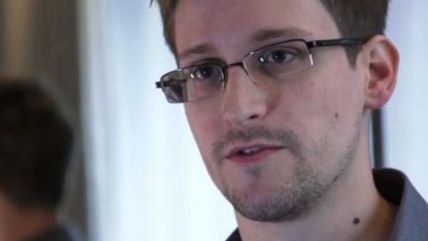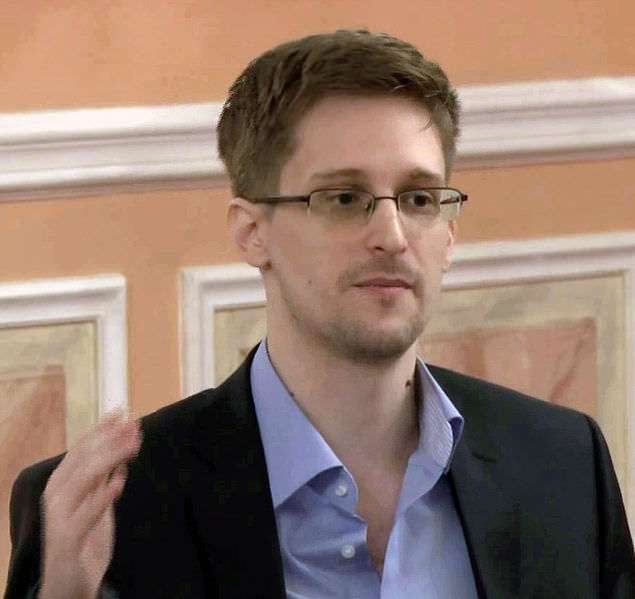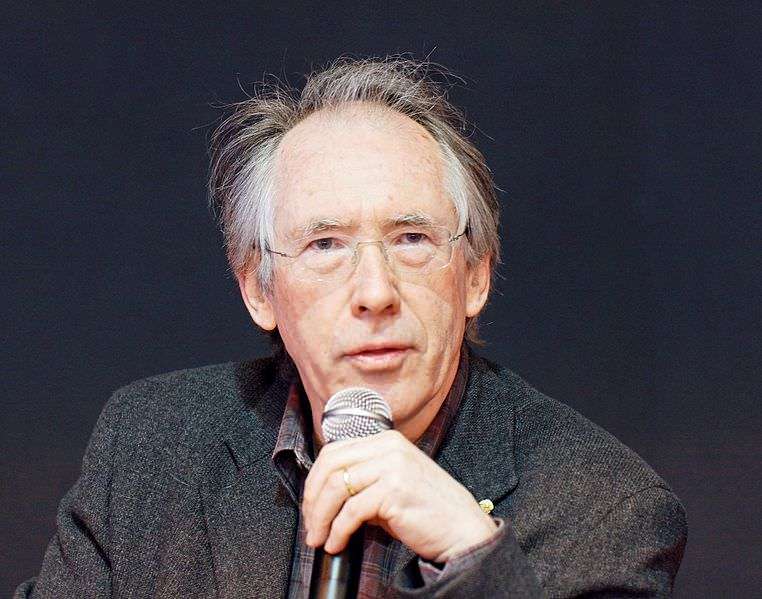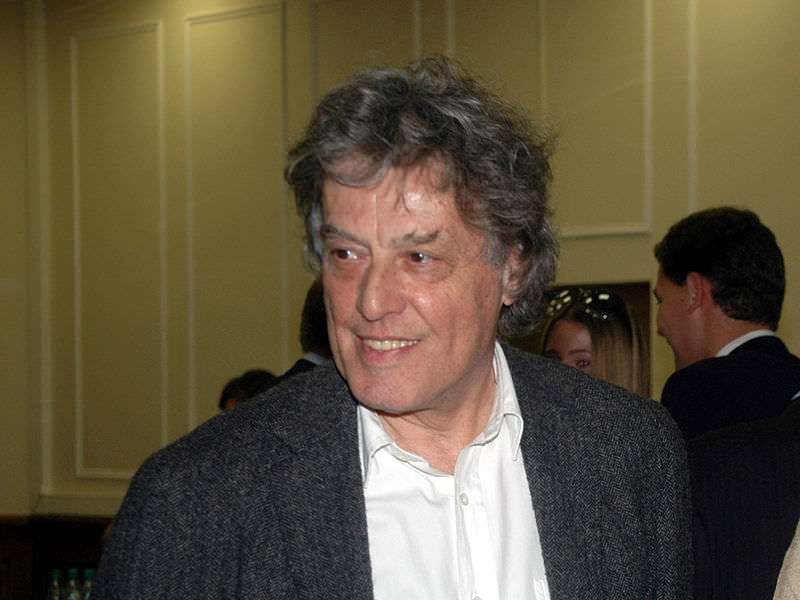Snowden and Writers Reflect on Liberty

The Guardian has put together a collection short essays on liberty written by NSA whistle-blower Edward Snowden and some writers.

Snowden's contribution below:
Today, an ordinary person can't pick up the phone, email a friend or order a book without comprehensive records of their activities being created, archived, and analysed by people with the authority to put you in jail or worse. I know: I sat at that desk. I typed in the names.
When we know we're being watched, we impose restraints on our behaviour – even clearly innocent activities – just as surely as if we were ordered to do so. The mass surveillance systems of today, systems that pre-emptively automate the indiscriminate seizure of private records, constitute a sort of surveillance time-machine – a machine that simply cannot operate without violating our liberty on the broadest scale. And it permits governments to go back and scrutinise every decision you've ever made, every friend you've ever spoken to, and derive suspicion from an innocent life. Even a well-intentioned mistake can turn a life upside down.
To preserve our free societies, we have to defend not just against distant enemies, but against dangerous policies at home. If we allow scarce resources to be squandered on surveillance programmes that violate the very rights they purport to defend, we haven't protected our liberty at all: we have paid to lose it.

Ian McEwan, the author of the novels Atonement and Enduring Love, writes that the freedom of expression supports all other freedoms:
The idea of liberty grandly shelters many sorts of freedom, all of which, until the onset of modernity, had little definition in human aspirations. We reach easily now for concepts that once had no existence: the freedoms of universal franchise, of travel within and between countries, of assembly, association, worship, privacy, sexual equality and preference, of due process, of freedom from torture – the list goes on and is enriched by the proliferating concept of rights – of prisoners, patients, children, animals, of rights to clean water, food, a family life. Everywhere in the world, some or all of these remain contested.
But one freedom underpins the entire list. Without it, the aspirations clustered under liberty's umbrella could not have come into being. Every freedom we possess or are struggling to possess has had to be thought and talked and written into existence, which is why the rock on which liberty stands is freedom of expression. Democracy without it is a sham.

Playwright Tom Stoppard says that liberty taken to its extreme is anarchy:
Every act of regulation by authority is an erosion of liberty. That tells us what liberty is, and that you can have too much of a good thing. Liberty pushed to extreme is anarchy. Regulation pushed to extreme is dictatorship. Millions of words have been devoted to finding the balance, and the question remains open. The collective drift towards more regulation in the western liberal democratic model is driven by good intentions and by a mad dream of perfect fairness in which individual discretion and individual responsibility are intrinsically subversive.
Read the rest of the contributions here.
Editor's Note: As of February 29, 2024, commenting privileges on reason.com posts are limited to Reason Plus subscribers. Past commenters are grandfathered in for a temporary period. Subscribe here to preserve your ability to comment. Your Reason Plus subscription also gives you an ad-free version of reason.com, along with full access to the digital edition and archives of Reason magazine. We request that comments be civil and on-topic. We do not moderate or assume any responsibility for comments, which are owned by the readers who post them. Comments do not represent the views of reason.com or Reason Foundation. We reserve the right to delete any comment and ban commenters for any reason at any time. Comments may only be edited within 5 minutes of posting. Report abuses.
Please to post comments


Millions of words have been devoted to finding the balance, and the question remains open. The collective drift towards more regulation in the western liberal democratic model is driven by good intentions and by a mad dream of perfect fairness in which individual discretion and individual responsibility are intrinsically subversive.
Tom, they're not gonna get it. There is no reasoning with them. It may be that the old saw "the road to Hell is paved with good intentions" reflects a distillation of hard-won cultural wisdom that too many of your generation, especially, thought they were uniquely immune to. Like the Bolsheviks and the French Commune, the generation came to power saying, "we know the abuses, you can trust us to be better." Thankfully, for the most part, we've had a much slower erosion preventing, thus far any Reigns of Terror. But I don't think its being to outlandish to say that the final straw is very likely in the next pile of hay.
I think that's right. And I don't think liberty is natural for groups of people; the natural tendency is to organize and form communities. You can much more easily form alternatives to government (organizations) than alternatives to sanctioned liberty (black markets). I don't think we'll ever see liberty pushed to the extreme, as human tendencies won't let it get to that point.
Communities are voluntary; states aren't.
The problem of human nature mixed with a petitionary state comes when one voluntary actor is unkind to another, as when a restaurateur asked a gay couple to leave his establishment. The response of the victim is always to seek revenge/recompense, and the best way to do that is to get Big Brother to beat up the bully who embarrassed you by denying access to his services. The richer and more entitled that people become, the more opportunities for the state to ensure that the voluntary interactions of yesteryear are no longer voluntary.
And provided that humanity exists long enough, anarcho-capitalist intentional communities somewhere. Markets are too efficient for the state to exist forever and everywhere.
No community is voluntary in the way you mean it. Everyone has to compromise something in order to get along with other people. And new people are born into one or another community without exercising any choice in the matter.
The distinction you guys make between voluntary communities and allegedly involuntary states seems to require that no children are born, and every adult gets his way all the time.
If it's anything else, then it's just a modern democratic state, the result of the natural evolution of communities in the modern world.
The difference is the allowance of alternative communities with their own voluntary governments of different flavors that people can move between and choose to live in(Libertarian). Th eother way is one in which there is ONLY ONE way for a community to organize that is tolerated (Tony's way).
I can understand, Tony, why you struggle to see why and how people would live in a freer society/community. One of the reasons i refuse to give my beagle any left over steak off my plate is that he eats his own turds. Such a wonderful thing as a piece of perfectly grilled steak is beyond his understanding and his primitive palate.
We already have exactly the system you're talking about. About 200 different alternative communities (at the nation level) to choose from. Fifty alternative communities called states under the US's jurisdiction. Countless municipal-level communities to choose from.
You can only expect that people, over time, would opt for larger and more cohesive communities since that does come with benefits.
Nevertheless, you have more choices of countries than you do of cable companies by like two orders of magnitude. That's a free market if I ever saw one.
"can only expect that people, over time, would opt for larger and more cohesive communities since that does come with benefits."
This is in contrast to human history. There is no doubt that for humanity and the world, giovernment has gotten smaller. Only a few western nations have grown in government size and not due to the "people's wish" but rather the natural process of governments to grow larger when unchecked. The rest of the world had oppressive governmnets thats were "checked" and shrunk.
The US and the west has experienced levels of prosperity that have allowed us to ignore and overlook the growing states. (bread and circuses...)
And NO, that is not what we have. I would be locked up if I wished to establish a community just a few blocks in size that allowed people to smoke marijuana, drink unpasteurized milk or open businesses without state and local permission.
Yeah but that's the price you have to pay for living in a society in which people cannot also choose to set up a small community in which rape and murder are legal.
But actually you have every right to do that provided you can find ungoverned land. Good luck. That you think you're entitled to your own personal duchy on a finite planet is bizarre.
One may easily form new voluntary communities in an AnCap framework, that may differ at any point with other existing communities; that is extremely difficult with a government framwork.
The key to free markets -- often overlooked in discussing the topic -- is that there is no artificial barrier to the entry of new participants or exit of existing participants.
No, that's what your distinction requires. From your own mouth:
"No community is voluntary in the way you mean it. Everyone has to compromise something in order to get along with other people."
Cooperation is not coercion. You are unbelievably retarded.
Cooperation often involves coercion. If your society only works in a universe in which nobody ever comes into conflict, then what's the point?
At the heart of modern collectivism is a disagreement about the meaning of words--that's why people like Tony are always trying to define words like voluntary out of existence. It's too problematic a concept for his worldview.
Thus the weird digressions into whether anyone chooses to be born or whether protecting the right of voluntary associations entails that "every adult gets his way all the time." It's infantile, but for someone who doesn't understand what we mean when we use the words voluntary and coerce, it makes perfect sense. After all, we don't *choose* to be born or even to speak English as our first language, so why should we *choose* where we live or with whom we associate? If some things in life aren't voluntary, then why should anything be?
Somehow they never get around to telling us where they're going to find the angels they need to run their utopian society of pure coercion for them.
You can choose where you live and with whom you associate. Is that what voluntariness entails? I would totally agree that a society that forbids you from moving or freely associating is unacceptable. But what extra levels of voluntariness do you require? And how will they not negatively affect other people's lives (such as those who are perfectly content living in a modern industrialized state)?
Libertarians are the ones with a serious problem with the meanings of words. Coercion doesn't stop being coercion when it's used for things you think are legitimate (e.g., preventing murder and rape). Taxes don't become theft only when they pay for things you don't like.
So should we err in the opposite direction (toward anarchy)?
All that will be lost on the sheeple of Britain.
"All that will be lost on the sheeple of Britain."
And it is lost on Greenwald, who thinks he gets to pick what theft he prefers a government to do.
If you sup with the devil, there is no spoon long enough.
Based on what I read above, I'd say all of that was written by sheeple of Britain, with the exception of Snowden's remarks.
behaviour...programmes
As if Snowden wasn't enough of a traitor... How about you go eat some fish and chips on your way to the loo, after which you wash your hands under the tap before going off to your bird, Edward?
I don't like identity politics, but I'm glad Snowden's young and looks like the kind of person (20's/30's white, formally-educated quasi-hipster) who most likely has the time, resources, and self-interest to get animated about this NSA stuff. It's unfortunate, but I don't think an older person would have gotten the press or support he has.
And he's stayed on point well. I don't really know what his politics are, but I don't remember reading anything from him that hasn't dealt with the privacy stuff. Good on him for resisting the temptation to become a universal talking head.
"behaviour...programmes"
I'll bet those were the product of the English editor rather than Snowden.
Yeah, I think so too.
I don't like identity politics, but I'm glad Snowden's young and looks like the kind of person (20's/30's white, formally-educated quasi-hipster)
B-b-but... he's not "formally educated," he never even attended a state college, much less an Ivy. /elitist shithead
I don't really know what his politics are
I've read that he was a Ron Paul supporter.
He gave Paul $500 in 2012.
Snowden has tiptoed around the word libertarian to keep from alienating lefties who care about civil liberties (even if they mix negative and positive "rights" like McEwan), but a shiny Liberty Dollar says that he's a good libertarian.
which is why the rock on which liberty stands is freedom of expression.
I'd disagree. Self-defence, and the means thereto, are the rock on which liberty stands.
... (hit submit too soon) ...
Democracy without it is a sham
Another who confuses "democracy" with "liberty".
Stoppard's quote is rather gloomy, but still interesting. Gonna link to this in my blog in the next day or so.
Every act of regulation by authority is an erosion of liberty. That tells us what liberty is...
Since you haven't told me what "authority" or "regulation" are, I have no idea what you mean by "liberty".
Nor do I understand how you can have too much of a good thing. It seems like what you really mean is that you're giving the same name ("liberty") to a good thing (e.g. speaking your mind) and a bad thing (e.g. robbing the blind), and getting yourself all confused in the process.
Liberty pushed to extreme is anarchy
Really? See, I would agree, but what I would interpret that as is saying is that the ideal state for humans is, in fact, anarchy, as it is true liberty. But that's not what he means. He means the usual pants-wetting "if people are fully free to do what they want, there will be chaos and SOMALIA!" Because people like him think "true liberty" means being able to kill your neighbor and face no consequences, which is absurd.
The fear of actual, true freedom and liberty is so prevalent in so many people that even those predisposed to liberty are often too terrified of what that really means to do anything but attack it. How limited of them.
Yeah, he gets hung up on this idea of striking some sort of mystical "balance," when true liberty is the ideal state. The phrase "too much of a good thing" baffles me.
Water is a good thing. Too much will kill you. Are you unbaffled?
I can't tell whether people like that have no foundation in understanding how human beings interact peacefully--either a theory of natural rights or even a utilitarian ethics--or if they're just so thoroughly confused by language that they don't know that the word liberty does not entail rape, murder, and the full range of potential human behaviors.
I think the former produces the latter.
Just like people with an implicitly-held theory of value as intrinsic to things get so thoroughly confused by language that they tooss around phrases like "a good thing" without reflection.
I've read it several times and I think he's a principled Lockean. Read the whole thing and you'll see it is a lament. I think he sees the progression as both inevitable and regrettable.
. We are all halfway to being treated like infants and madmen now. As civilisation advances in complexity, liberties give way. So be it, but it's as well to know and name the retreat of liberty for what it is, and not to call it something else, before the retreat becomes a rout.
"and is enriched by the proliferating concept of rights ? of prisoners, patients, children, animals, of rights to clean water, food, a family life."
Okay, you lost me.
Don't you know that you have a right to free speech *and* free healthcare? Funny how an accident of the English language has led to huge political consequences.